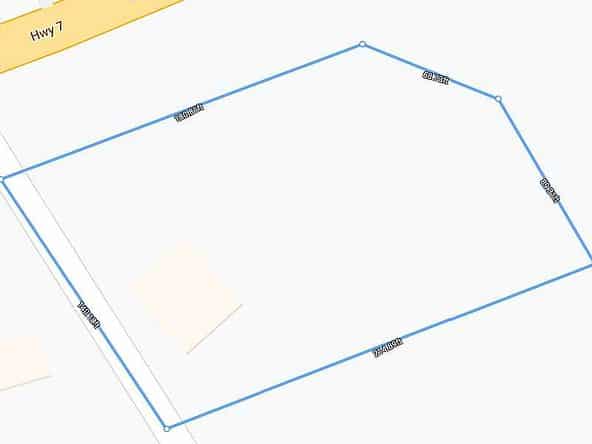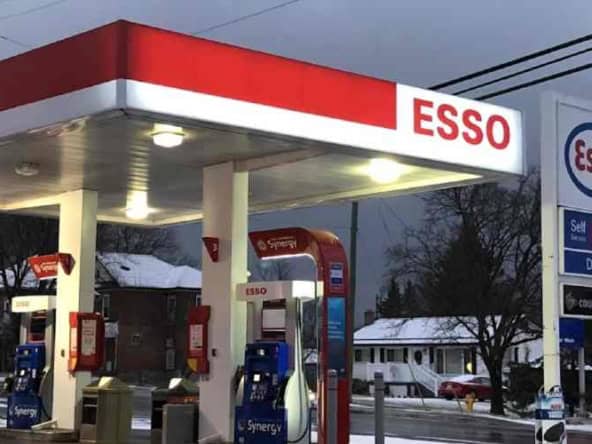Introduction to Gas Stations for Sale in BC
Are you considering investing in a gas station for sale in BC? The gas station industry offers a lucrative and stable investment opportunity, attracting both new and seasoned investors. Whether you’re looking to buy your first gas station or sell an existing one, understanding the market dynamics, financial considerations, and legal requirements in British Columbia is crucial. This guide will walk you through the essential steps to ensure you make informed decisions and maximize your profit.
Buying a Gas Station in BC
Market Analysis and Location Selection
Before purchasing a gas station for sale in BC, conducting a thorough market analysis is essential. Start by evaluating the local market conditions, including the competition, traffic patterns, and demographic trends. Identify areas with high vehicle traffic and limited competition, as these locations tend to generate higher sales volumes.
Consider the proximity to highways, commercial centers, and residential areas. Gas stations located near busy intersections or in densely populated areas typically attract more customers. Additionally, assess the potential for future growth and development in the area, as this can impact the long-term profitability of your investment.
Engage with local real estate agents and commercial property experts to gather insights on the best locations. Utilize online tools and resources to analyze traffic data and market trends. This research will help you identify the most promising areas for your gas station investment in BC.
Financial Considerations
When buying a gas station for sale in BC, it’s vital to evaluate the financial aspects to ensure a sound investment. Start by reviewing the station’s financial records, including profit and loss statements, balance sheets, and tax returns. This will give you a clear picture of the station’s financial health and profitability.
Consider the initial purchase price, which can vary significantly based on location, size, and existing infrastructure. Factor in additional costs such as renovation, equipment upgrades, and working capital. It’s also essential to assess the fuel supply agreements and contracts with suppliers to understand the ongoing operational costs.
Work with financial advisors and accountants to analyze the station’s cash flow and potential return on investment (ROI). Understanding these financial metrics will help you make an informed decision and negotiate a fair purchase price.
Selling a Gas Station in BC
Preparing Your Gas Station for Sale
When selling a gas station in BC, preparation is key to attracting potential buyers and securing a profitable deal. Start by ensuring that the station is in good working condition. Perform necessary maintenance, repairs, and upgrades to enhance the station’s appeal. This includes ensuring that all equipment, such as pumps, dispensers, and point-of-sale systems, are functioning optimally.
Next, organize and update all financial and operational records. Prospective buyers will want to review the station’s financial performance, including sales data, expenses, and profit margins. Providing transparent and well-organized records will instill confidence in potential buyers and expedite the sale process.
Consider enhancing the station’s curb appeal by cleaning the premises, repainting, and improving signage. A well-maintained and visually appealing gas station will attract more buyers and potentially increase the sale price.
Marketing and Finding Buyers
Effective marketing is crucial to reaching potential buyers and closing a successful sale. Start by listing your gas station for sale on reputable commercial real estate websites and industry-specific platforms like Gas Station for Sale. Utilize high-quality photos and detailed descriptions to showcase the station’s features and benefits.
Consider working with a commercial real estate broker who specializes in gas station sales. They have access to a network of potential buyers and can help you navigate the sales process, from listing to closing.
Leverage social media platforms and local advertising to increase visibility. Highlight the station’s unique selling points, such as high-traffic location, modern equipment, and potential for growth. Engaging with local business communities and attending industry events can also help you connect with prospective buyers.
Legal and Regulatory Considerations
Navigating the legal and regulatory landscape is a critical aspect of buying or selling a gas station in BC. Ensure that all necessary permits, licenses, and environmental regulations are in place and up to date. This includes fuel storage permits, business licenses, and compliance with local zoning laws.
Consult with legal professionals who specialize in commercial real estate and environmental law to ensure a smooth transaction. They can help you understand the legal requirements, draft contracts, and handle any potential legal issues that may arise during the sale or purchase process.
Maximizing Profit from Gas Station Sales
Maximizing profit from gas station sales involves strategic planning and execution. For buyers, this means identifying stations with high growth potential and implementing effective management practices. Focus on enhancing the customer experience, optimizing operational efficiency, and exploring additional revenue streams such as convenience stores, car washes, or food services.
For sellers, maximizing profit involves presenting a well-maintained, profitable, and appealing gas station to potential buyers. Ensure that all financial records are transparent and demonstrate consistent profitability. Highlight any recent upgrades or improvements that add value to the station.
Negotiation skills are also crucial in maximizing profit. Be prepared to negotiate the sale price and terms, and consider working with a professional negotiator or broker to achieve the best possible deal.
By understanding the market, preparing thoroughly, and leveraging expert advice, both buyers and sellers can navigate the gas station property market effectively and achieve profitable outcomes. For more information, visit Gas Station for Sale.
Key Factors to Consider When Buying a Gas Station in BC
Location, Location, Location
One of the most critical factors to consider when buying a gas station for sale in BC is its location. The right location can significantly impact the station’s profitability and long-term success. High-traffic areas with limited competition are ideal. Look for stations near busy intersections, highways, commercial centers, and residential neighborhoods.
Environmental Concerns and Compliance
Gas stations must comply with strict environmental regulations to ensure safe fuel storage and prevent contamination. When considering a gas station for sale in BC, ensure that all environmental permits and licenses are in place. Conduct a thorough environmental assessment to identify any potential issues and ensure compliance with local and federal regulations.
Financial Health and Performance
A detailed analysis of the gas station’s financial health is crucial before making a purchase. Review the station’s profit and loss statements, balance sheets, and tax returns. Evaluate the station’s revenue streams, including fuel sales, convenience store sales, and any additional services offered. Understanding the station’s financial performance will help you make an informed investment decision.
Infrastructure and Equipment
Assess the condition of the gas station’s infrastructure and equipment. Well-maintained and modern equipment can reduce maintenance costs and improve operational efficiency. Ensure that fuel pumps, dispensers, point-of-sale systems, and storage tanks are in good working condition. Factor in any potential renovation or upgrade costs when evaluating the investment.
Steps to Successfully Sell Your Gas Station in BC
Enhance Curb Appeal
First impressions matter. Enhancing your gas station’s curb appeal can attract more buyers and potentially increase the sale price. Clean the premises, repaint the building, and improve signage. Ensure that the station looks well-maintained and inviting to prospective buyers.
Organize Financial Records
Prospective buyers will want to review your gas station’s financial performance. Organize and update all financial records, including profit and loss statements, balance sheets, and tax returns. Transparent and well-organized records can instill confidence in buyers and expedite the sale process.
Highlight Unique Selling Points
Identify and highlight your gas station’s unique selling points. This could include a high-traffic location, modern equipment, additional revenue streams, or potential for growth. Emphasize these points in your marketing materials to attract potential buyers.
Utilize Professional Marketing Services
Consider working with a commercial real estate broker who specializes in gas station sales. They have access to a network of potential buyers and can help you navigate the sales process. Additionally, list your gas station on reputable commercial real estate websites and industry-specific platforms like Gas Station for Sale. Use high-quality photos and detailed descriptions to showcase your station’s features and benefits.
Engage with Potential Buyers
Engage with potential buyers through social media platforms, local advertising, and industry events. Highlight your gas station’s strengths and address any concerns buyers may have. Building a strong rapport with potential buyers can increase your chances of a successful sale.
Conclusion
Investing in a gas station for sale in BC offers a promising opportunity for profitability and growth. Whether you’re buying or selling, understanding the market dynamics, financial considerations, and legal requirements is crucial. By conducting thorough research, preparing meticulously, and leveraging professional advice, you can navigate the gas station market effectively and achieve your investment goals.
For more information and to check listings of available gas stations for sale in BC, visit Gas Station for Sale.




